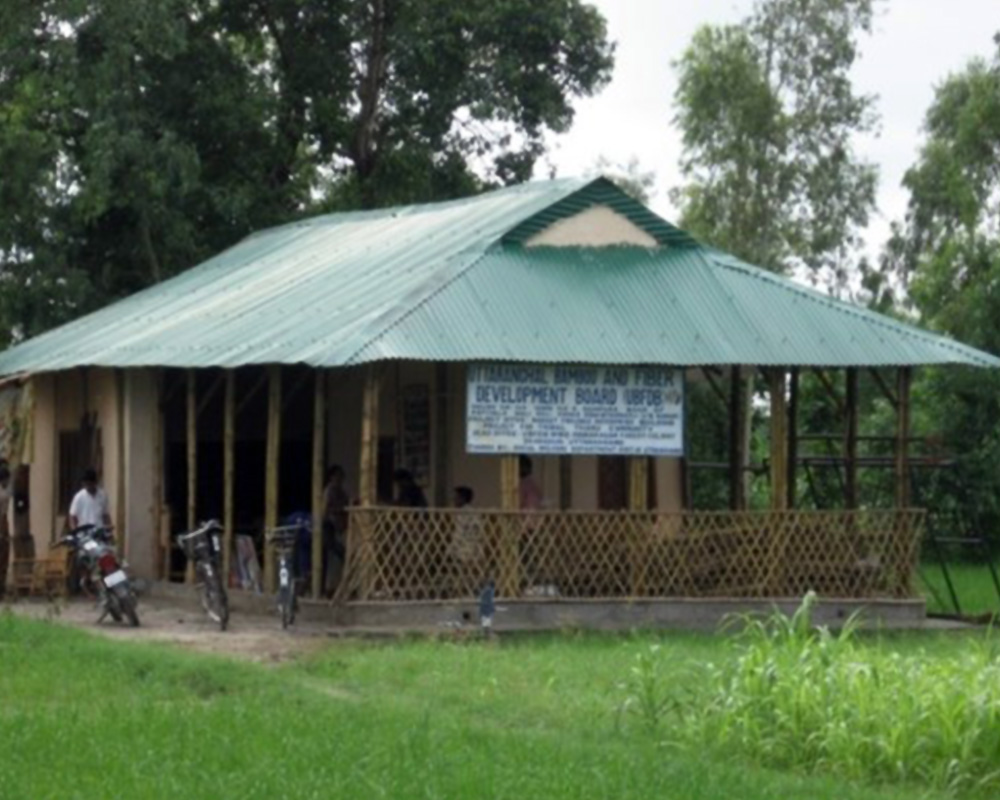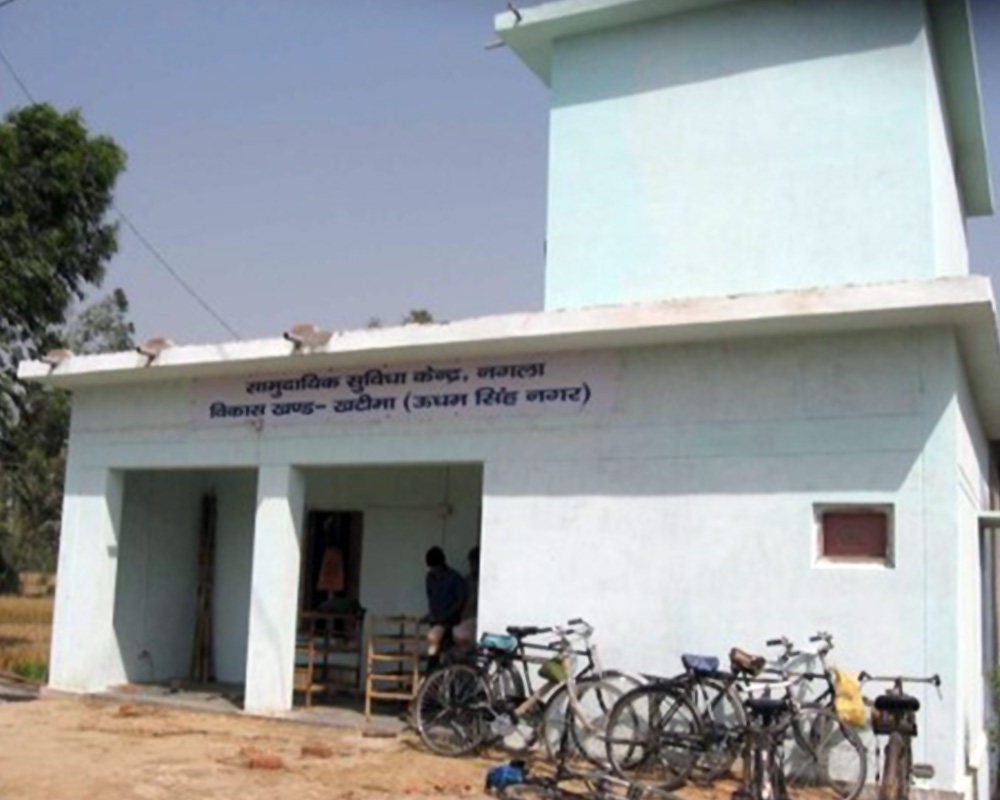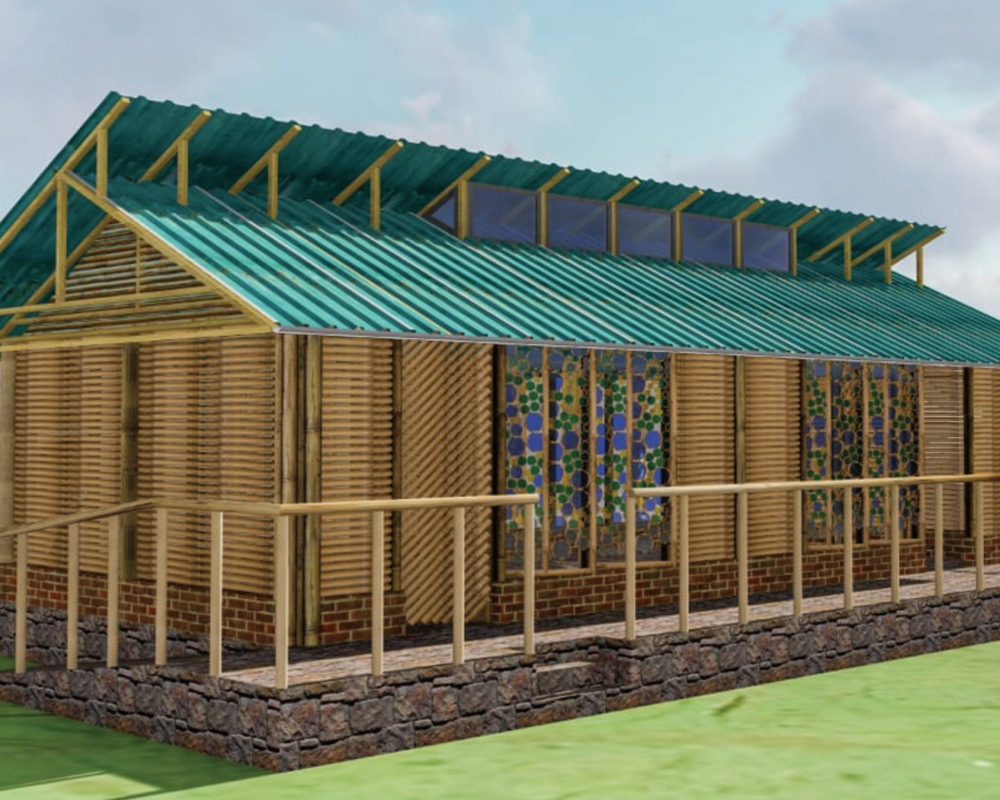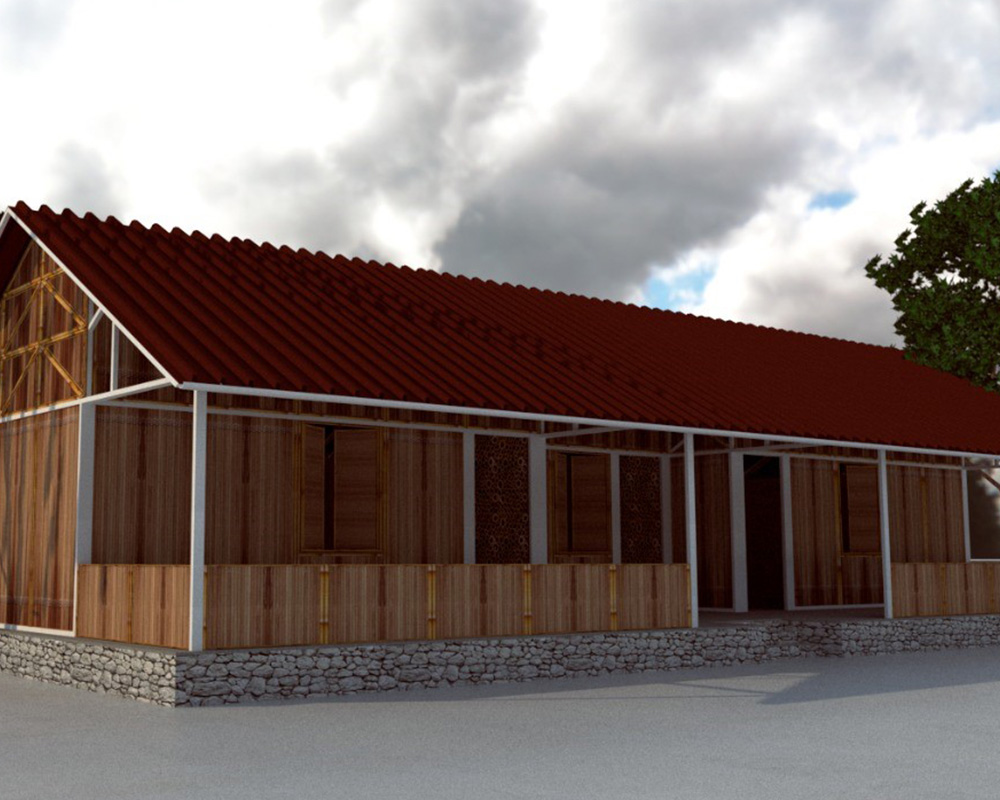Brief note on: “Bamboo the way forward- Management and Utilization of Bamboo”
Uttarakhand has a moderate resource of bamboos roughly distributed over 1.489 lakh hectare (ISFR report 2019) under the control of forest department. The forests are dominating bamboo resource, though, commercially they are non productive under the effect of existing forest conservation laws. The forest dependent communities of Uttarakhand fulfill their basic needs of fuel wood and fodder from the forests and in addition, collect various NTFPs including ringal for their own consumption and value addition for livelihood. Natural fibers are also one of these kind which they collect and sometimes, cultivate some of them, for various household uses. Due to limitation of arable land resources and comparatively difficult life forms, providing large scale livelihood to rural population is ever challenging. Since rural life in villages of Uttarakhand is mostly natural resources based, the model of development which the state government adopted during formulation of the new state's policies was rested on the vast natural resources of the state. Uttarakhand Bamboo and Fiber Development Board (UBFDB) is one such initiative of the Government of Uttarakhand, which was created in 2003 to take up bamboo and natural fiber based livelihood creation in the state.
Since its inception, UBFDB has been able to rally together the entire value chain of operations in the field of bamboo and natural fibers. Right from changing social perceptions of the resource, to developing and managing the resource, to mobilizing appropriate knowledge and technology up to processing, value addition through design interventions, and marketing with the following initiative:
Awareness campaign:
In order to address the myths associated with bamboo and ringal, UBFDB has developed and conducted intensive awareness campaign in 550 villages reaching out to 36659 families throughout the state. The rural community become more aware, empowered and enabled community having greater skills and support to grow the resource and to manufacture value added produce integrated with larger market needs.

Nursery Development:
Considering the non availability of bamboo seed due to long flowering cycle, UBFDB initiated nursery development till date 29 nurseries have been developed in deferent forest division and Ajivika Vatika (Demonstration and Nursery Facility) of the state to provide quality planting materials. In these nurseries more than 15 different commercially viable bamboo species have been introduced.

Bamboo Plantation:
UBFDB through the state forest department has carried out about 15000 ha. bamboo plantation and generated 1.35 crore work days through different plantation programs. It is expected that the plantation will be providing around 47065 metric tones of bamboo annually on maturation.

Fodder Initiative:
Some of the bamboo species that are considered to be good fodder species have also been introduced through different programs, in an effort to increase the biomass available for fodder especially in the hills where fodder shortage leads to increased drudgery for the women folk of the hills. The fodder initiative has been linked up with the NREGS schemes for greater outreach.

Training and Capacity Building:
In the last seventeen years, UBFDB has trained more than 4930 artisans/farmers across the state in the area of bamboo and ringal handicraft, bamboo furniture and housing and developed 110 master trainers specializing in bamboo and ringal handicrafts, bamboo furniture and housing.

Design and Product Diversification:
As the market trends are constantly shifting, the product design and product range too need constant innovation and improvement. Product and design development is thus an ongoing activity at UBFDB which takes place at various craft-clusters throughout the year. Initially the board had a full-time design coordinator, a design graduate from National Institute of Design, Ahmedabad, for this purpose. The coordinator was responsible for organizing design activities in various community clusters with the help of other design consultants and interns. Gradually, as the board has established itself in the field of bamboo and natural fiber handicrafts it manages to receive about 10-15 student interns a year from leading design institutes in the country namely- NID, Ahemdabad; NIFT, New Delhi; IICD, Jaipur. Consequently, most of UBFDB’s design diversification needs are fulfilled by these design interns. In addition the board has collaborated with several other institutes like IIT, Delhi and Mumbai; Konkan Bamboo and Cane Development Center and others (mention others) from the north-east to get inputs on appropriate tools and innovative techniques for product development. Over the years, around 500 new designs and products have been developed in bamboo, ringal and natural fibers.

Bamboo Housing:
Uttarakhand falls under 4th and 5th earthquake zone and prone to earthquake. Considering this and to promote the utilization of bamboo in infrastructural application, UBFDB is promoting bamboo housing in the state. UBFDB has successfully completed more than 92 structures in different parts of Uttarakhand the clientage includes both institutional and private entrepreneurs.

Establishment of Common facility center:


The CFCs have been conceptualized as market-oriented community production and value addition centers equipped with the required tools and machinery for production apart from infrastructure for training and storage of raw material. Around 8 AFCs have been developed exclusively for bamboo and ringal activity in 4 districts of Uttarakhand. Hence, these centers also function with the objective of imparting training to upgrade craft skills and develop entrepreneurship among rural communities with an emphasis on Quality, Quantity and on Time (QQT) principles. Artisans have the opportunity to participate in hands-on product and design development workshops facilitated by specialized Master Trainers, wherein they are acquainted with new tools and processing techniques (weaving, dyeing, etc). Efforts are also made to stream-line the production process by introducing concepts such as product specialization, grading and finishing in order to enhance the overall quality and efficiency.
The capacity of an AFC is much lesser than the State level CFC. They mainly serve as out-reach centers to roughly 20-30 existing artisans as well as potential artisans- women and unemployed youth from marginalised communities who are interesting in learning new skills to supplement their incomes. They are equipped with resource specific primary and secondary processing hand-operated semi-mechanised tools and machines. In some AFCs artisans come in and regularly work from the centers while in other places they work from their homes and mainly come to sell their finished products and for trainings or meetings.
It is envisaged that AFCs would evolve into community based enterprises with initial support from UBFDB professionals and eventually be strong enough to operate under the leadership of the community. They could also serve as business incubation centers for budding entrepreneurs by providing them support and linkages. In time the available facilities will be run on a revenue-generating model where the members will be using the facilities at the center on a minimum payment basis.
| S.No. | Name of cluster | Thematic area |
|---|---|---|
| 1 | Pipalkoti (Chamoli) | Ringal and Natural Fibers |
| 2 | Mangroli (Chamoli) | Natural Fibers |
| 3 | Dewal (Chamoli) | Natural Fibers |
| 4 | Sangam Chatti (Uttarkashi) | Ringal and Natural Fiber |
| 5 | Mori (Uttarkashi) | Natural Fiber |
| 6 | Supi (Bageshwar) | Ringal and Natural Fiber |
| 7 | Sitarganj (Udham Singh Nagar) | Bamboo and Seasonal Grass |
| 8 | Khatima (Udham Singh Nagar) | Bamboo and Seasonal Grass |
| 9 | Kotdwar (Pauri) | Bamboo |
| 10 | Arvind Nagar (US Nagar) | Bamboo |
Networking and Partnership:
Networking with different technical support organisations in the field of bamboo and natural fiber has been established by UBFDB over the years for a mutually rewarding and enriching experience in the field of bamboo and natural fibers in an effort to bridge the gap between general community and different technical agencies.
Research and Development:
UBFDB has been constantly undertaking R&D on various bamboo and natural fiber related activities, ranging from provenance trials for species suitability in various geo-physical conditions of Uttarakhand. Introduction of new bamboo species, Bamboo preservation and treatment using alternate plant based preservation and treatment methodology. Tool development for value addition, exploratory work on unexplored forestry species aimed to generate sustainable livelihoods for the rural communities of the state.
Institutional Building and Marking:
In order to increase community participation in marketing and enterprise development UBFDB has formed and promoted 62 SHGs and 07 Self Reliant Cooperatives. These institutions and their members are continuously show casing their improved product range in various national -international trade fairs and exhibitions.
Bamboo based Schools:


Got Uttarakhand Cabinet decision on construction of bamboo-based disaster resistant buildings for 5000 primary schools. An MoU between Education Department and Uttarakhand Bamboo and Fiber Development Board has been signed and initially, the work of making detail project report of 8 schools has started.
Salient Features of Bamboo Schools:
- Earthquake Resistance/Disaster Safe /Environment friendly
- Low cost/Low Maintenance
- Local Employment/Local resources/Student Friendly
